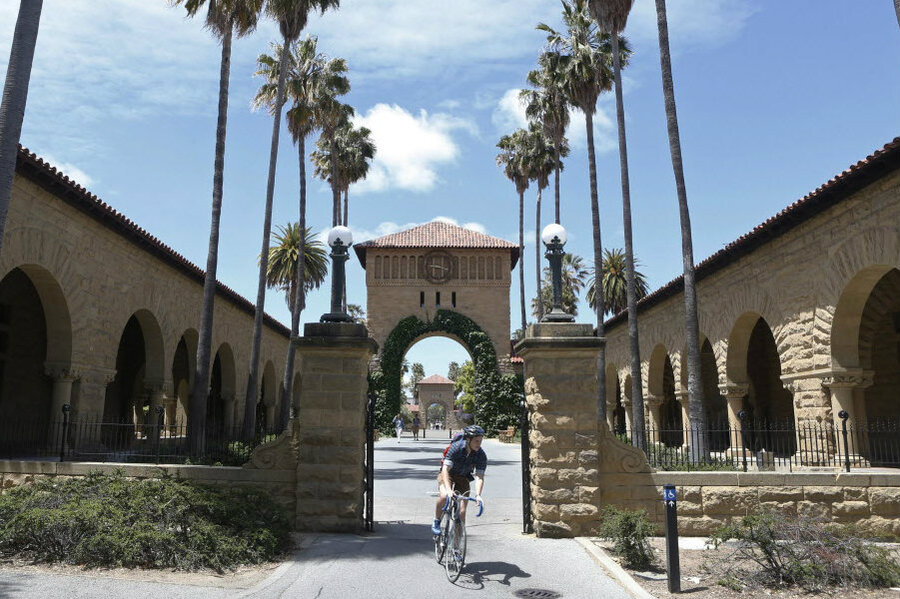Stanford professors urge university to divest of fossil fuels. The right move?
Loading...
Three hundred professors from Stanford have called on the university to let go of all fossil fuel investments in the first major campus divestment movement to be led by faculty, The Guardian reports.
In a letter sent Sunday to Stanford’s president and board of trustees, the professors say that the university must rid itself of its fossil fuel stocks as part of its obligation to help curb climate change – and to practice what it preaches:
“If a university seeks to educate extraordinary youth so they may achieve the brightest possible future, what does it mean for that university simultaneously to invest in the destruction of that future? Given that the university has signalled its awareness of the dangers posed by fossil fuels, what are the implications of Stanford’s making only a partial confrontation with this danger?
...For Stanford’s investment policies to be congruent with the clarity and drive in its classrooms, the university must divest from all fossil-fuel companies.”
US college and university endowments have about 5 percent of their assets, or $22 billion, invested in energy and natural resources, including traditional fossil fuels, according to 2014 data from the National Association of College and University Business Officers.
So far, 18 colleges and universities around the world have divested from fossil fuels via student-led movements, according to climate advocacy group 350.org. More than 100 cities, religious groups, foundations, and other institutions have done the same.
Stanford joined that list in May 2014 when its board of trustees announced that the university would halt all investments in coal companies – though the California institution received some criticism months later, after it was revealed that its endowment bought shares in three oil and gas companies.
“This doesn’t run counter to Stanford’s commitment because they made it clear they would divest from coal,” Jamie Henn, communications director of 350.org, told Bloomberg, “but it certainly isn’t in the spirit of the commitment they made.”
While more than 400 schools across the US have active student-led divestment movements, how effective the strategy is in the struggle against climate change remains debated. Advocates echo the Stanford faculty members’ argument that institutions that manage endowment funds have a moral and ethical obligation to invest in socially responsible companies and funds.
Another argument highlights the value of “challenging the legitimacy of a business model that now threatens lives and livelihoods around the world,” Ellen Dorsey, executive director of the Wallace Fund, wrote in The Wall Street Journal. “[Divestment] is about moving money into things like energy efficiency, renewables and clean technology.”
At Harvard University, where the value of its endowment rose to more than $36 billion in 2014 – the largest of any university in the world – students went so far as to take the university to court.
Harvard’s position is similar to that of most divestment critics: Though effectively symbolic, the strategy has no real impact on the fossil fuel industry and could even undermine efforts against climate change:
“Divestment is likely to have negligible financial impact on the affected companies. And such a strategy would diminish the influence or voice we might have with this industry,” Drew Faust, Harvard’s president, said in an Oct. 3, 2013 letter to the university community. “Divestment pits concerned citizens and institutions against companies that have enormous capacity and responsibility to promote progress toward a more sustainable future.”
I also find a troubling inconsistency in the notion that, as an investor, we should boycott a whole class of companies at the same time that, as individuals and as a community, we are extensively relying on those companies’ products and services for so much of what we do every day. Given our pervasive dependence on these companies for the energy to heat and light our buildings, to fuel our transportation, and to run our computers and appliances, it is hard for me to reconcile that reliance with a refusal to countenance any relationship with these companies through our investments.
I believe there are a number of more effective ways for Harvard both to address climate change and to enhance our commitment to sustainable investment.








